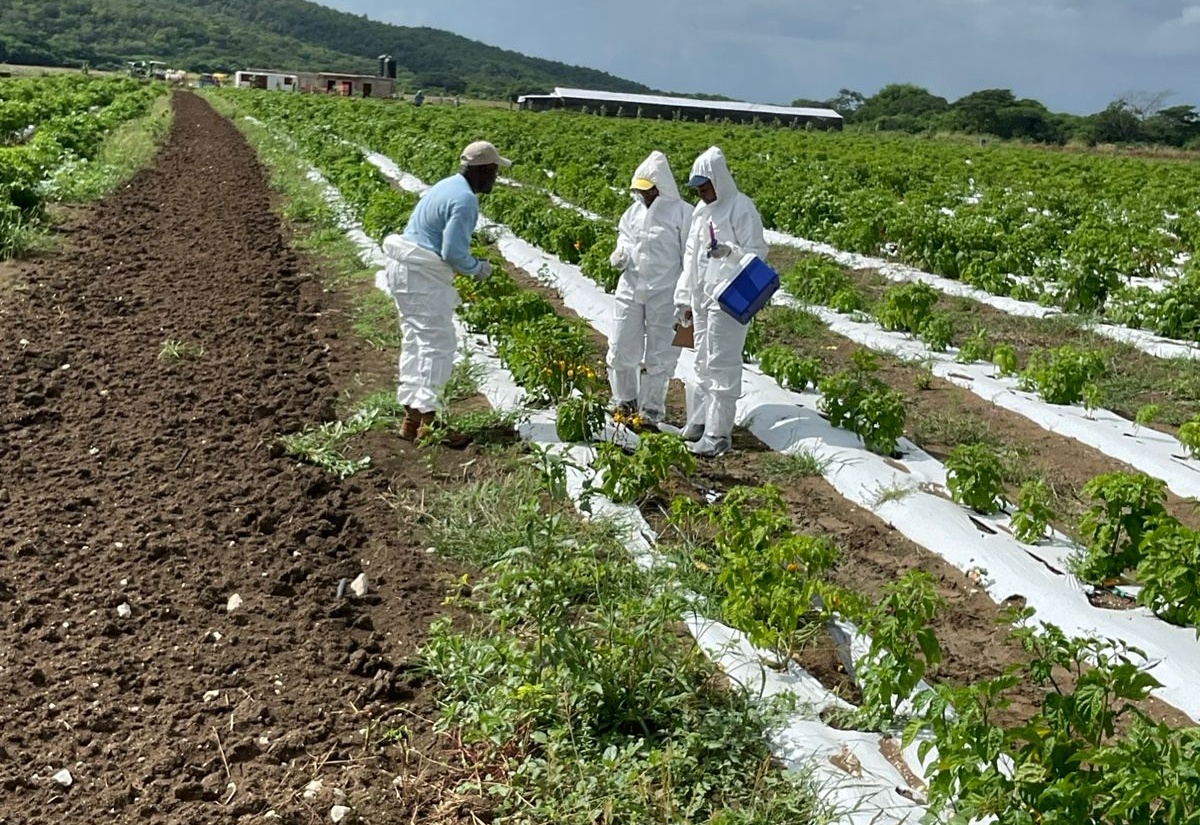Local Stakeholders Trained to Combat Hot Pepper Pests
By: , February 20, 2024The Full Story
Sixty-five local stakeholders in the agriculture sector have benefited from training to better identify and tackle pests affecting hot pepper.
The hot pepper quarantine pest identification and field simulation exercise was implemented by the Food and Agriculture Organization of the United Nations (FAO) through the Improving the Phytosanitary, Food Safety & Market Access Opportunities along the Hot Pepper Value Chain project.
This approach to pest management is linked to the project’s main aim of addressing the phytosanitary, food safety, clean seeds production and export constraints within the local agri-food system.
In an interview with JIS News, FAO National Project Manager, Sanniel Wilson Graham, said the project engaged farmers and technical officers from all 14 parishes that are a part of the Plant Health Coordinating Committee (PHCC), also known as the pest emergency response team.
Participants were drawn from the Plant Quarantine/Produce Inspection Branch (PQPI), the Research and Development Division (RDD), Rural Agricultural Development Authority (RADA) and Agro-Investment Corporation.

Mrs. Wilson Graham said the training aimed to sensitise the stakeholders about hot pepper quarantine pests, raise awareness of the pest emergency response framework and train technical officers about the identification of Tomato Brown Rugose Fruit Virus (ToBRFV).
“A pest prioritisation session was held with the PHCC. During the session, the group assessed the four target pests of the hot pepper quarantine pest emergency response plan using the Objective Prioritization of Exotic Pests (OPEP) Tool,” she noted.
The plan supports one of the project’s major outputs, which is to strengthen the technical and resource capacities within the hot pepper subsector.
“Coming out of the training, a manual has been developed and will be made available for public access, especially for technical officers to continue capacity-building,” Mrs. Wilson Graham told JIS News.
Meanwhile, with the training, Jamaica has now executed its first simulation for a viral plant pest.
The ToBRFV, while not in Jamaica, was selected for the simulation exercise due to global attention attributed to its rapid spread.
Mrs. Wilson Graham said Jamaica had previously conducted three pest emergency response simulations, but the focus on a viral plant pest will prepare technical officers to respond effectively.
“The pest is not in Jamaica. As such, the focus was on training the PHCC, RADA officers, plant quarantine officers, research and development officers. This team will be responsible for mobilisation in the event the pest enters the region. Farmers will be trained by the technical officers,” she indicated.


